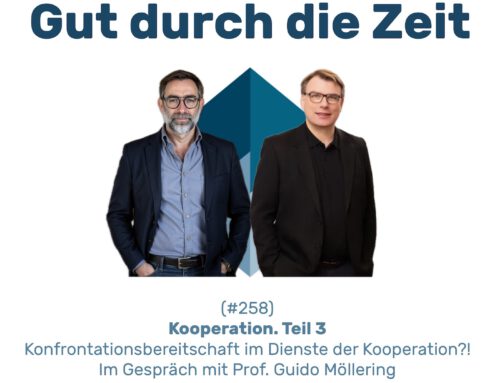INKOVEMA Podcast „Well through time“
#238 GddZ
Municipality as a field of conflict - conflict manager municipality
Municipalities as a field of action for social conflicts with which they must find a constructive approach.
In conversation with Prof Beate Küpper and Dr Sonja Fücker
Sonja Fücker is a sociologist and mediator. She heads the "Municipal Conflict Management" department at the Conflict Academy ConflictA at Bielefeld University. As a freelance mediator, she supports communication processes in scientific organisations and municipal institutions. She is a volunteer mediator and arbitrator for the organisation Täter-Opfer-Ausgleich Bremen e. V. (Victim-Offender Mediation Bremen).
Prof Dr Beate Küpper University of Applied Sciences Niederrhein Faculty of Social Work SO.CON Social Concepts, Institute for Research and Development in Social Work, social psychologist, external member of the board of directors of the Conflict Academy ConflictA at Bielefeld University, works on diversity, right-wing populism and right-wing extremism as well as local conflicts and their management.
Small series: Contributions from the field of conflict dynamics. Part 6
Contents
Chapter:
detailed summary
In this episode, we take an in-depth look at the topic of conflicts in municipalities and their dynamics. I have invited two highly qualified guests: Mrs Professor Beate Küpper and Mrs Doctor Sonja Fücker. The aim of the discussion is to consider the municipalities as areas of conflict, both as a theatre and as a decisive actor in conflict management.
Firstly, we bring in the perspective of the researchers, both of whom have extensive experience in social-psychological research and practical conflict management. Beate Küpper explains that conflicts in society often originate from local challenges, such as structural changes or social integration issues. By expanding from a local to a global level, the perception of conflicts is particularly strongly influenced. Sonja Fücker adds that it can often be observed that local conflicts, such as neighbourhood disputes, quickly lead to larger-scale social debates.
It is clear that the perception of conflicts varies depending on the actor. While citizens often perceive local problems as significant, surveys among experts show a shift in focus towards social inequalities. This discrepancy is identified as a key challenge for conflict management in municipalities. The result is not only that municipalities act as addressees of conflicts, but also that they themselves act as potential perpetrators or active players in these conflict dynamics.
The dialogue shifts to the concrete methods of conflict management within municipal structures. It is discussed that successful conflict resolution depends not only on the professionalisation of those involved, but also on their willingness to take responsibility and deal with their own perspectives in a reflective manner. This is reflected in the need to integrate different perspectives on conflicts in order to promote a broad-based dialogue.
The fact that many citizens have a great interest in co-determination, but often do not become active in practice, is viewed critically. The tension between aspiration and reality in political co-determination becomes clear, especially against the backdrop of increasing populism. Populist narratives often characterise the perception of conflicts and distort the debate on the actual problems.
We also highlight the importance of protection concepts for those who actively work on conflict resolution in municipalities. This perspective places responsibility not only on individual actors, but also on the institutional structures that must create the framework conditions for conflict-aware action.
Finally, we reflect on the need for professionalisation in conflict management and the opportunities that municipalities have to remain capable of acting in an increasingly complex social environment. Links to the works of Küpper and Fücker, which deepen the theoretical and practical aspects of municipal conflict management, round off the discussion. The audience will thus gain a comprehensive insight into the multi-layered challenges and dynamics that municipalities are confronted with.
Complete transcription
(AI-generated)





Leave A Comment